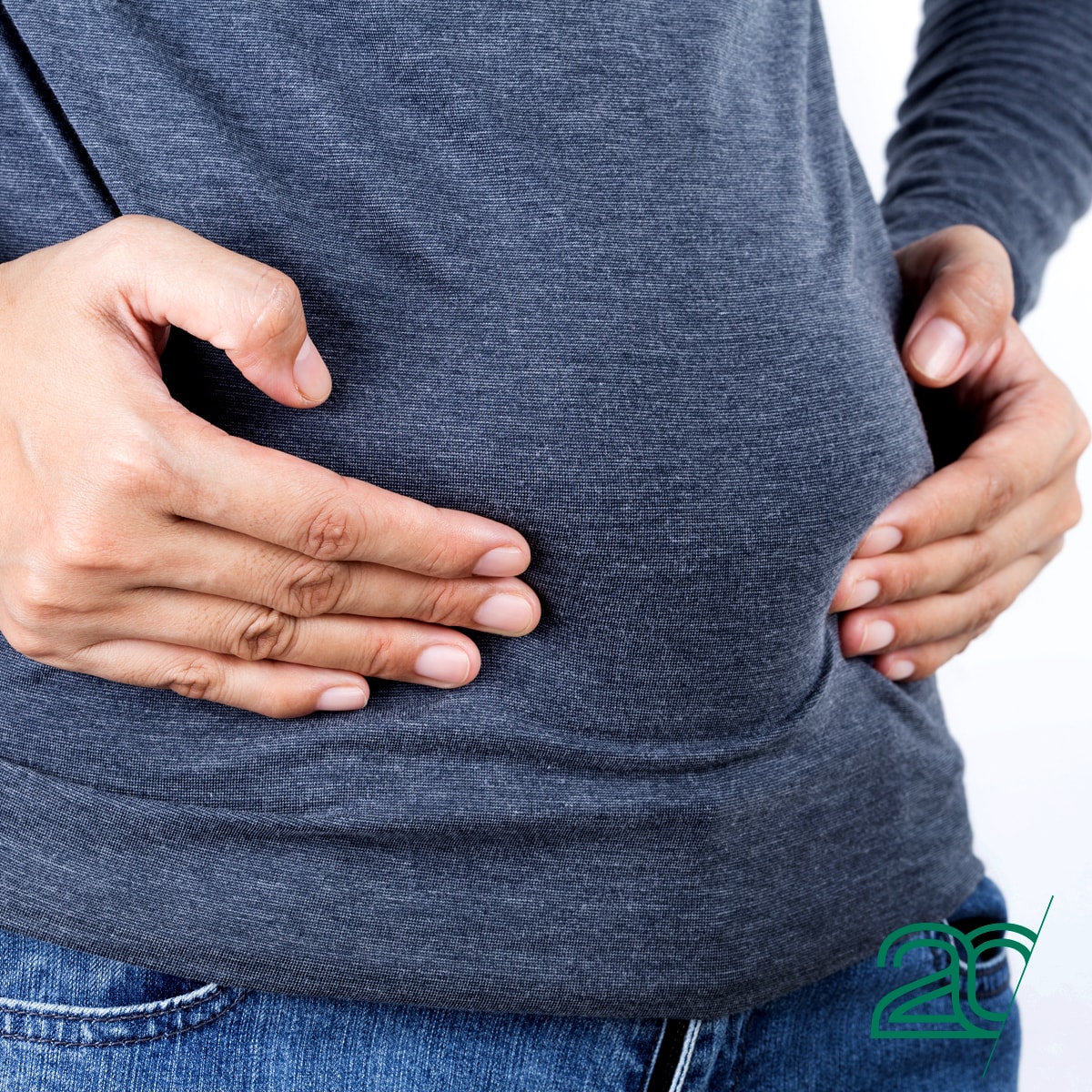Why Am I So Bloated? Top Gut Health Tips
8 September, 2020

If you’re feeling bloated and heavy in your stomach area, there’s a good chance that your gut health could be suffering. If you want to improve your overall wellness and help your body’s digestion improve, then, adjusting your diet for gut health could work for you.
Being bloated is rather normal, and can be a result of many different things. Hormones, diet, exercise and stress all play into how our body holds water and gas (this is usually the cause of bloating). The good news is that there are ways you can identify the cause of your bloating. You can then take steps to improve how your body feels.
Take a look at our top gut health tips to improve your bloating and make the most of EMS training.
Why Am I So Bloated?
Normally, bloating can often occur after eating certain foods. However, as mentioned previously, there can be many reasons why your body is showing signs of bloating.
Excess gas production or movement of food and muscles in the digestion process can cause a bloated feeling in your stomach. This build-up of gas and liquid can cause a ‘full feeling’ and make your stomach expand.
Certain foods can be better or worse for bloating, depending on your body and your allergies. Many people don’t realise that they have intolerances that may be making them bloated, and a food allergy test can sometimes be the first step to deciphering why you are so bloated.
What Are The Common Signs Of Bloating?
Often, people can be confused about whether they are actually bloated or whether they have gained weight because the symptoms can feel similar. However, bloating has specific symptoms, such as:
-
- Stomach pain
<li‘Full’ belly feeling>
- Gas/flatulence
- Abdominal gurgling or rumbling
- Enlarged stomach area that can feel very rounded and firm

What Are Common Reasons For Bloating?
Some of the common reasons for bloating are:
- High salt intake
The bad news is that most of us eat too much salt, and this can be a leading cause of bloating. When we eat salt, our body thinks that we are dehydrated so it holds on to the water that we are carrying. This means that we can appear more bloated than normal.
- Carbohydrate-heavy diet
When we eat a lot of carbs, our body holds onto water. Simple carbs such as sugary treats, fizzy drinks and white bread and pasta are particularly bad for encouraging water retention.
- Eating too quickly
When we eat quickly and don’t chew our food properly, we take in a lot of gas as we chew. This means that there is excess gas in our intestines and digestive system, which can lead to bloating.
- Consuming a lot of FODMAPs
FODMAPs are in foods that are digested at the end of the digestive tract and can cause bloating. These foods include garlic, pears, wheat pasta, asparagus and many more
- Fibre imbalance
Fibre helps to aid digestion. Without enough fibre, you may experience constipation which can lead to bloating. Equally, too much fibre in the diet can cause bloating as well. Adults need 30 grams of dietary fibre each day, but many of us are not achieving this target on a daily basis.
- Not consuming enough good bacteria
If your gut doesn’t contain enough good bacteria, it will become hard for your body to digest food. This can cause bloating and gut issues which make digestion uncomfortable.

How Can We Improve Gut Health?
There are some steps we can take to improve gut health and reduce the likelihood of bloating. These include:
- Adding pro and prebiotics to your diet
Gut health can be significantly improved by adding a probiotic to your diet with fermented drinks, yoghurts or supplements. Prebiotics can also help to improve gut health and are found in fermented foods such as miso, kombucha, kefir and yoghurts as well as some vegetables, rye and unripened bananas. Including these foods in your diet on a regular basis is a powerful step you can take to naturally restore the health of your gut.
- Drink more water
Fluid is an important part of digestion, too. Drinking enough fluid each day ensures that the digestive tract works as it should, regularly contracting and eliminating waste. Getting at least 1.5 to 2 litres of water each day is crucial for a healthy gut.
- Ingest less gas
Cutting down on fizzy drinks, chewing gum and high-salt foods will help to reduce the amount of gas your body consumes. Chewing more slowly is also a good way to consume less gas.
- Get a food tolerance test
Many people have food intolerances without realising it. As food intolerances can often be complicated and difficult to diagnose, if you have ongoing, unexplained bloating or gut discomfort, the best thing you can do is make an appointment to see a dietitian who specialises in food intolerances.
For more information on the best diet for your body, take a look at our nutrition ebook over on our home page.











